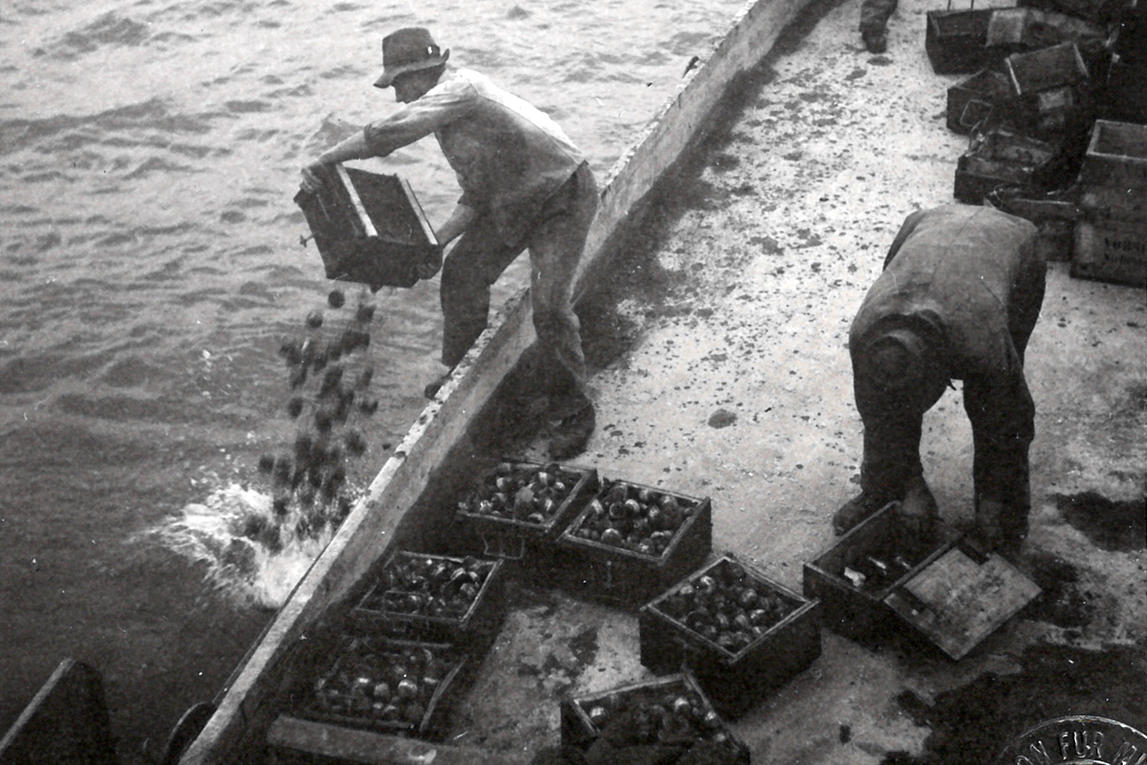
Geneva plans to investigate munitions dumped in lake
The Geneva authorities plan to launch a study into the munitions that were dumped in the lake. Between 1950-1970, some 150-1,000 tonnes of army munitions are thought to have been submerged not far from the city centre by a private firm Hispano-Suizo.
The cantonal authorities plan to follow recommendations made by the Federal Council to investigate the dumped munitions, a spokesperson from the Geneva Territory Department told the Keystone-ATS News Agency on Friday, confirming an earlier Tribune de Genève news story.
In Friday’s edition, Antonio Hodgers, the head of the department and current Geneva president, declared “the canton plans the launch a study. We are in touch with the Federal Department of Defence, Civil Protection and Sport”.
Between 1950 and 1970, some 150-1,000 tonnes of army munitions are thought to have been dumped in the lake not far from Geneva’s city centre by the private firm Hispano-Suizo.
Last month the Federal Council statedExternal link that an in-depth study would be needed to get a better overall picture of the munitions in Lake Geneva. It added that as a private firm had been involved, the canton was responsible for the survey but that, on request, defence ministry specialists could assist with any investigations.

More
Unexploded munitions continue to reverberate in Switzerland
Post-war idea
The story of the munitions dates back to the end of the Second World War when Switzerland found itself with a huge stock of unused weapons and ammunitions on its hands. The idea of disposing of the piles of old dangerous ordinance by submerging it in Swiss lakes quickly gathered pace.
Between 1948 and 1967, the army dumped an estimated 8,120 tonnes of munitionsExternal link in lakes Thun, Lucerne, Brienz and Walen. Private firms also got rid of munitions in Lake Zurich, the Rotsee near Lucerne and Lake Geneva.
But munitions thrown into Lake Geneva years ago have sparked recent concern. The cantonal authorities and the defence ministry investigated the case between 2002-2004 and revealed the type of munitions dumped but not their exact locations. They concluded that the situation was under control, as the munitions lie buried under sediment, and that so far drinking water quality has not been affected.
But last November a team of French diversExternal link discovered four damaged, open crates at a depth of 50 metres, about 150m from a pipeline and a drinking water sensor. In January, a group of anxious Geneva politicians filed a motionExternal link – an earlier attempt by Social Democrat Salima Moyard had failed in 2017 – calling for a full investigation into the munitions, the environmental risks, and an eventual clean-up operation.
Moyard told Tribune de Genève on Friday that she was happy the situation was moving: “I appreciate the awareness, even if it took a long time. The authorities always said everything was under control and that the munitions were under a layer of sediment. We have seen that it’s not the case.”

In compliance with the JTI standards
More: SWI swissinfo.ch certified by the Journalism Trust Initiative




























You can find an overview of ongoing debates with our journalists here . Please join us!
If you want to start a conversation about a topic raised in this article or want to report factual errors, email us at english@swissinfo.ch.